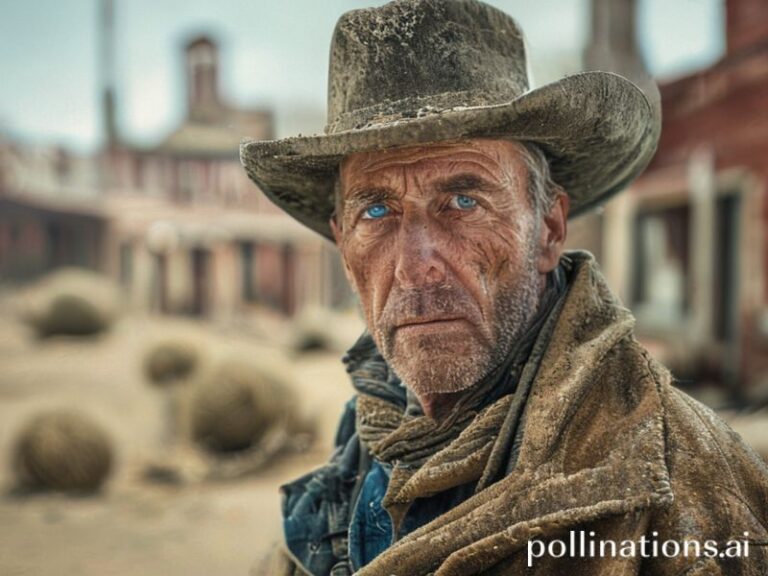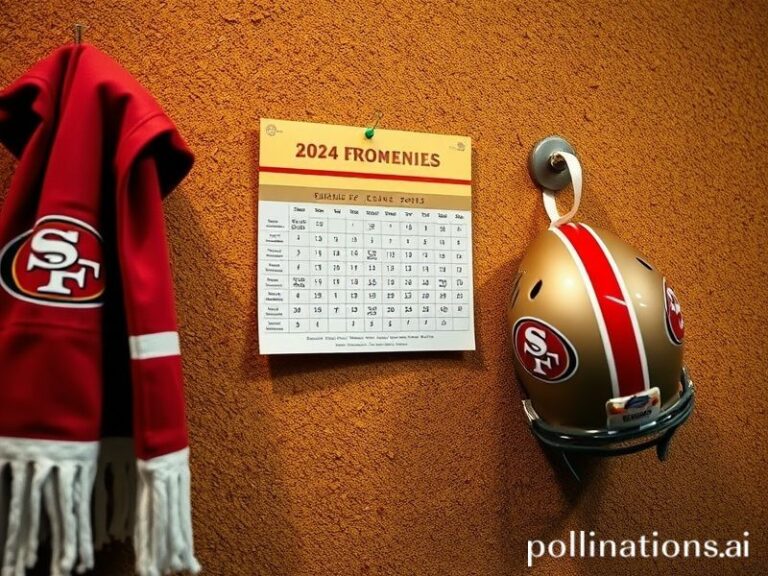Como vs Genoa: The Tiny Italian Derby Explaining Global Capitalism’s Midlife Crisis
Como vs Genoa: A Provincial Derby That Explains Why the World Is Still a Mess
by “Il Professore” – Dave’s Locker’s Balkan bureau chief, currently on sabbatical in a lakeside bar tabacchi
Lake Como’s Sunday residents—Russian oligarchs in floating villas, German tax exiles in electric speedboats, and a solitary Swiss banker who still thinks fax machines are avant-garde—woke up last weekend to a quaint sound: two Italian football clubs politely trying to maim each other. Como 1907 versus Genoa CFC, a fixture that only a cartographer could love, yet the international ripple effects were immediate, if microscopic.
First, the geopolitics. Como’s owner is the Indonesian Bakrie conglomerate, which means the match was technically an arm of Southeast Asian soft power kicking a ball toward a port city that once financed half the Crusades. Genoa, meanwhile, is now controlled by American private-equity firm 777 Partners, whose portfolio includes an Australian basketball team, a Chilean airline, and what appears to be a Bolivian llama-rental start-up. Somewhere in a Davos breakout session, a consultant just billed eight hours for that sentence.
Kickoff revealed the usual post-industrial melancholy. Como’s stadium, freshly rebuilt to seat 10,000 plus 400 influencers livestreaming Aperol tears, sits next to shuttered silk factories now repurposed as luxury lofts. Genoa’s ultras arrived by chartered ferry, waving medieval flags that once accompanied Genoese galleys en route to sacking Byzantium. History doesn’t repeat itself, but it does take the same ferry.
On the pitch, the game played like a UN climate summit: lots of urgent running in circles, minimal end product. Genoa’s new Uruguayan striker flopped theatrically, earning a yellow card and a complimentary acting class from the local conservatory. Como’s Albanian winger scored, then celebrated by unfurling a banner supporting both Ukrainian refugees and cheaper EU roaming charges—a gesture so multitasking it could have been drafted in Brussels. Final score: 1-1, the diplomatic result nobody wanted but everyone could hashtag.
Yet the global significance lies in the collateral absurdities. Betting syndicates in Manila reportedly moved €3 million on yellow-card minutes, reminding us that cryptocurrency volatility is still safer than trusting Serie A defenders. In Dubai, a sheikh watching via VPN allegedly lost a Picasso sketch in a private wager; the sketch was last seen on Instagram next to a plate of truffle fries. Meanwhile, the carbon footprint of 400 Norwegian Genoa fans flying in on a budget airline exceeded the annual emissions of the entire Comasque silk industry they came to photograph.
Off-field, the derby doubled as a pop-up trade fair. Como’s mayor used halftime to pitch Chinese investors on floating solar panels shaped like Versace scarves. Genoa’s port authority handed out glossy brochures titled “Gateway to Africa—Now with 30% Less Bureaucracy!” Both delegations left with gift bags containing olive oil, Bitcoin paper wallets, and the creeping suspicion that Italy’s entire economy is now performance art.
And then there was the referee, a Spaniard imported because domestic officials are on strike over unpaid VAR invoices. He spent the match consulting a small army of off-site video assistants located, rumor has it, in a Bucharest basement between TikTok shifts. At one point the screen froze on a still frame of his own confused face—a perfect metaphor for European decision-making in 2024.
The international takeaway? In a week when BRICS met to discuss dedollarization and AI experts warned of imminent human obsolescence, humanity still found time to argue over whether a Genoese midfielder’s studs were 2.7 or 2.8 millimeters too high. That is either reassuring or terrifying, depending on how many espressos you’ve had.
Como and Genoa will meet again, probably in some preseason tournament sponsored by a fintech firm that no longer exists. Flags will wave, crypto will flow, and somewhere on a yacht named after a tax loophole, a billionaire will yawn. For the rest of us, the match proved the oldest cynical truth: the smaller the stakes, the louder the drums. And the drums, dear reader, are now available as an NFT.







